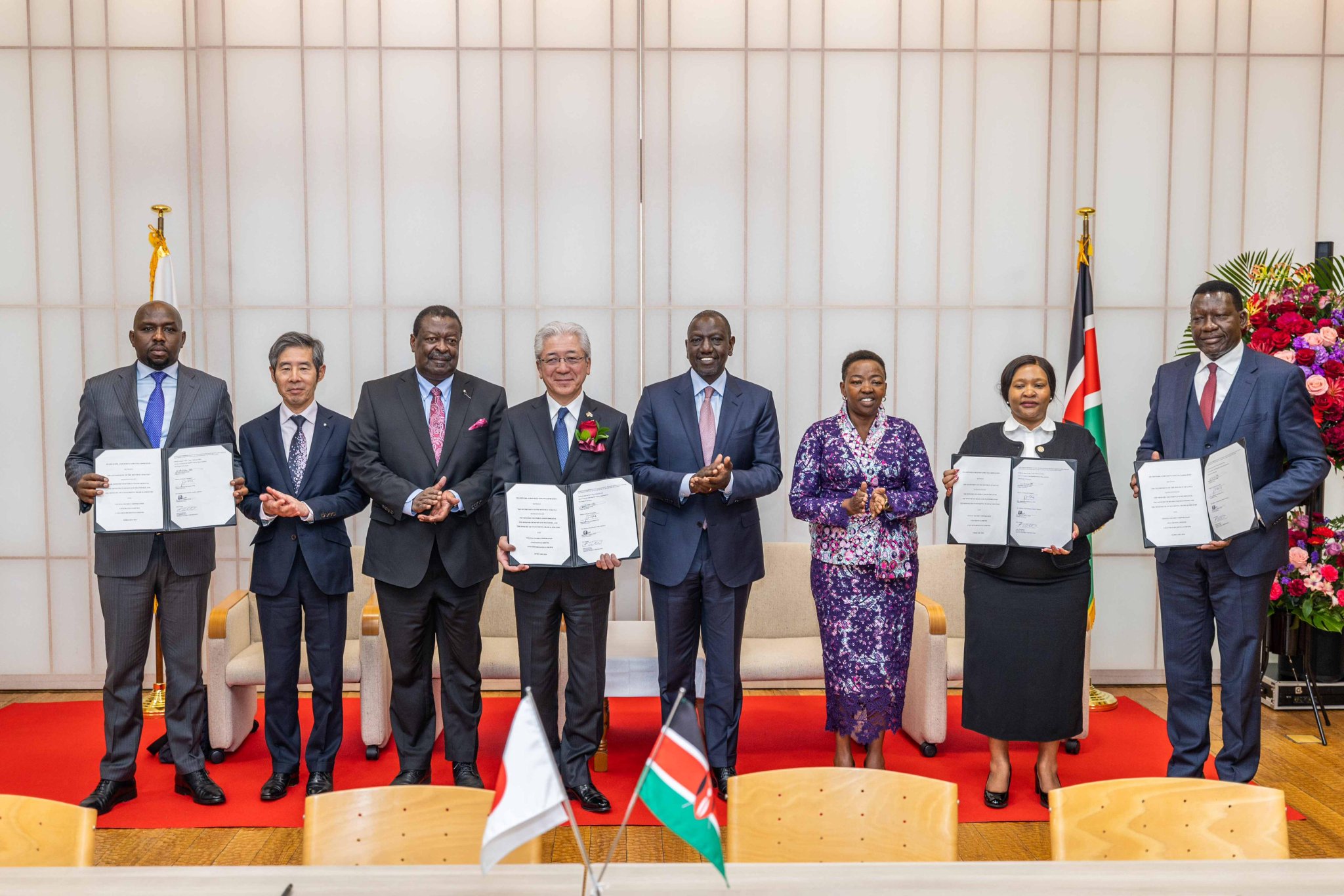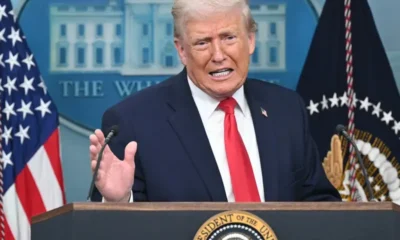News
Kenya, Toyota Tsusho Strike Deal On Key Motor Areas

Kenya has signed a deal with the Toyota Tsusho Corporation that will enable the Japanese company to provide funding for the Thika based Kenya Vehicle Manufacturers (KVM).
The agreement was made during the recently concluded G7 Session of Trade Ministers held in Osaka, Japan, with the aim of reviving the struggling company, although specific details about Toyota’s investment and the amount involved have not been disclosed.
The Kenyan delegation, led by Investments and Trade Cabinet Secretary Rebecca Miano, included Industry Principal Secretary Dr Juma Mukhwana and Kenya’s ambassador to Japan, Tabu Irina, while the Japanese delegation included Toyota Tsusho Corporation’s president and CEO, Ichiro Kashitani, and Kashumasa Kimura, the COO of Toyota Tsusho Africa Division New Business Development.
The Ministry stated that the decision to involve Toyota Tsusho in saving the company from collapse was made due to the financial difficulties faced by the local automotive assembling facility. The National Treasury holds the largest stake in the Thika-based vehicle manufacturer, with a 35 percent ownership, while CMC Motors and DT Dobie each have a 32.5 percent stake.
The company assembles vehicles from various brands such as Crown Motors (Nissan), PSA Group (Peugeot), and CMC Motors (Nissan Diesel, Eicher, and MAN). Additionally, KVM also builds bodies for commercial vehicle brands including Hyundai, Eicher, Isuzu, Mitsubishi, UD, Tata, Hino, Scania, MAN, and Ashok Leyland.
Ms Miano urged Japanese investors from Toyota Tsusho to take advantage of Kenya’s strategic position and increase local manufacturing of parts and components for the company’s assembling facility in Kenya.
The Ministry has committed to expedite the finalisation of the automotive Bill and automotive regulations in collaboration with industry stakeholders. These regulations will include provisions for End-of-Life Vehicle (ELV) recycling for used cars and batteries, as it is estimated that over 70,000 vehicles are currently lying in junk yards after reaching the end of their useful life.
The Ministry also expressed its support for capacity building of local manufacturers of parts and components, ensuring that they can meet the industry’s demands in terms of technology and volume. They also pledged to advocate for incentives such as reduced duty on electric and hybrid vehicles to make them more affordable to the public.
Kenya Insights allows guest blogging, if you want to be published on Kenya’s most authoritative and accurate blog, have an expose, news TIPS, story angles, human interest stories, drop us an email on [email protected] or via Telegram
-

 Americas6 days ago
Americas6 days agoEpstein Files: Bill Clinton and George Bush Accused Of Raping A Boy In A Yacht Of ‘Ritualistic Sacrifice’
-

 Business1 week ago
Business1 week agoCooking Fuel Firm Koko Collapses After Govt Blocks Sh23bn Carbon Deal
-

 Business7 days ago
Business7 days agoABSA BANK IN CRISIS: How Internal Rot and Client Betrayals Have Exposed Kenya’s Banking Giant
-

 Business4 days ago
Business4 days agoKRA Can Now Tax Unexplained Bank Deposits
-

 Lifestyle14 hours ago
Lifestyle14 hours agoThe General’s Fall: From Barracks To Bankruptcy As Illness Ravages Karangi’s Memory And Empire
-

 Investigations3 days ago
Investigations3 days agoEpstein Files: Sultan bin Sulayem Bragged on His Closeness to President Uhuru Then His Firm DP World Controversially Won Port Construction in Kenya, Tanzania
-

 Investigations2 weeks ago
Investigations2 weeks agoPaul Ndung’u Sues SportPesa for Sh348 Million in UK Court, Accuses Safaricom Boss of Sh2.3 Billion Conspiracy
-

 Americas6 days ago
Americas6 days agoEpstein Files: Trump Accused of Auctioning Underage Girls, Measuring Genitals and Murder















